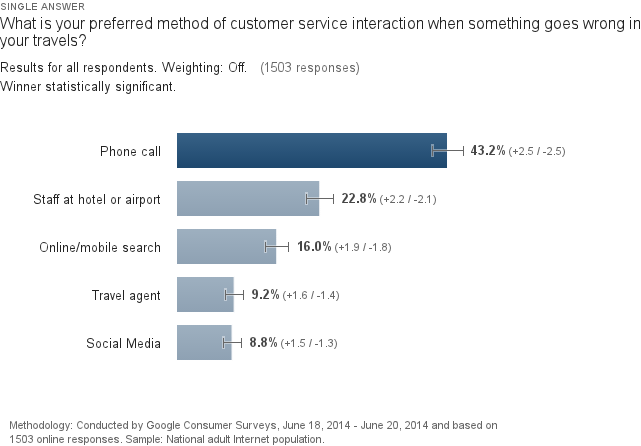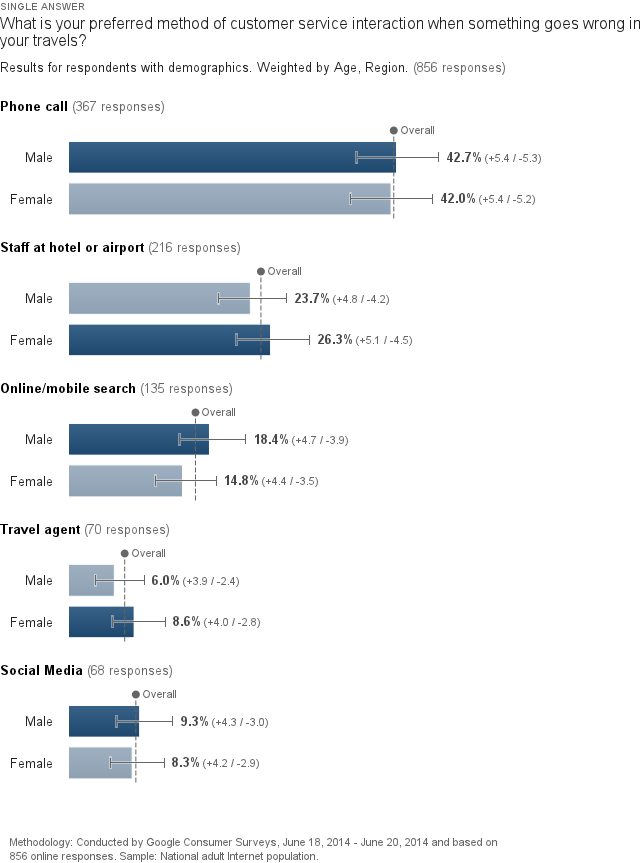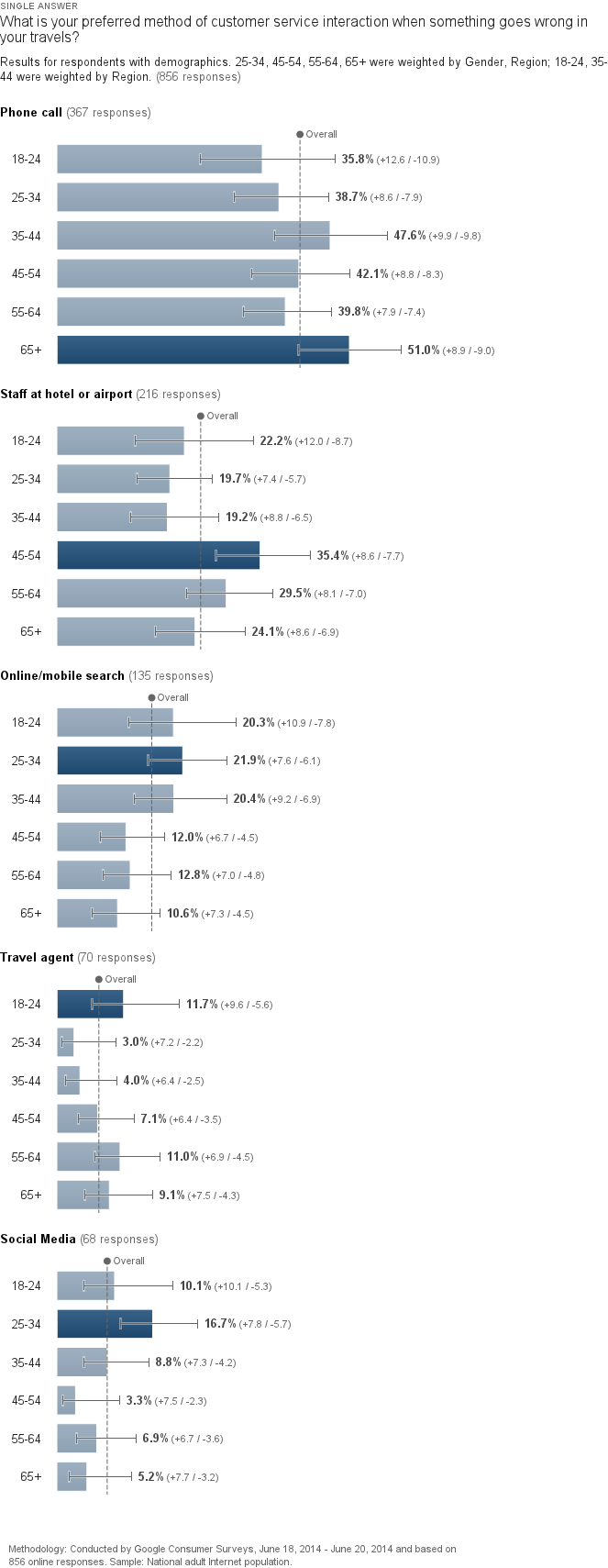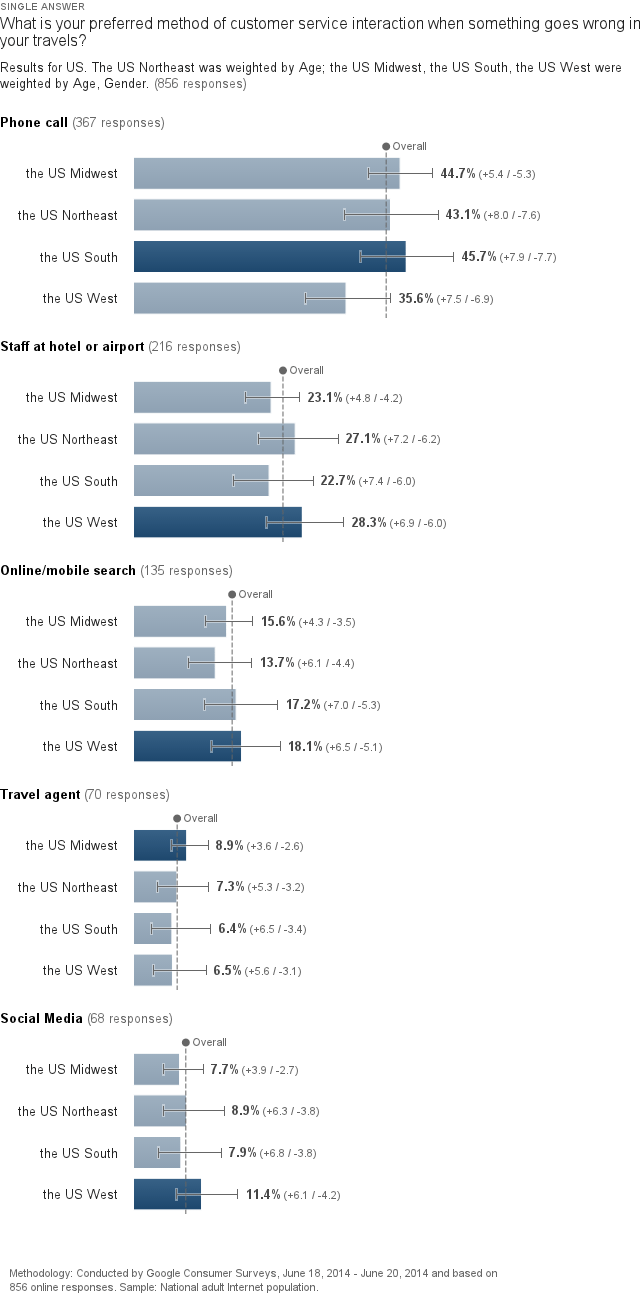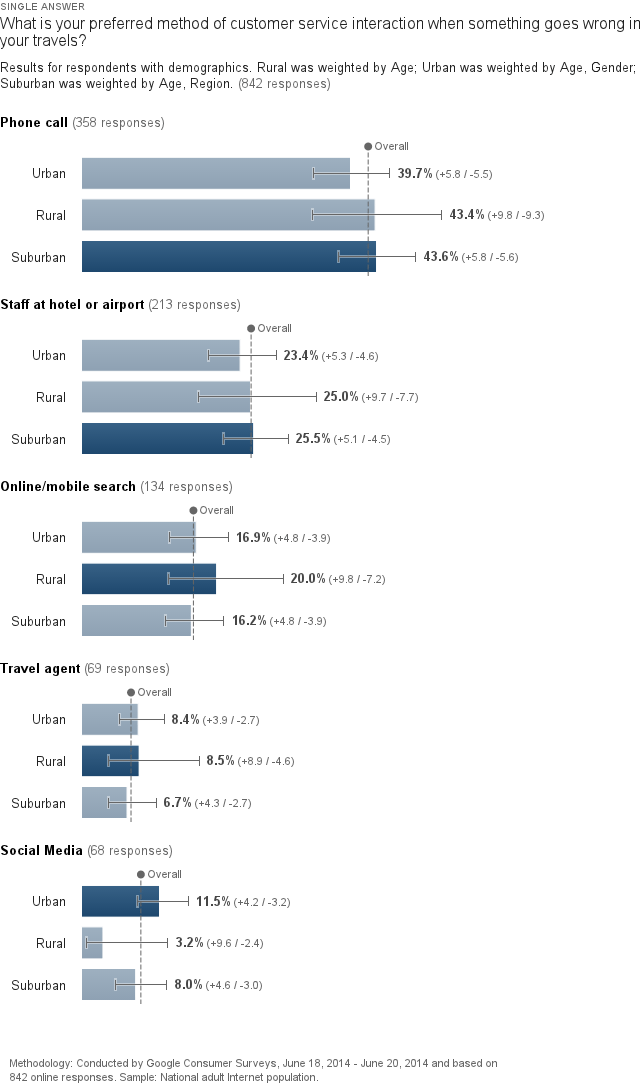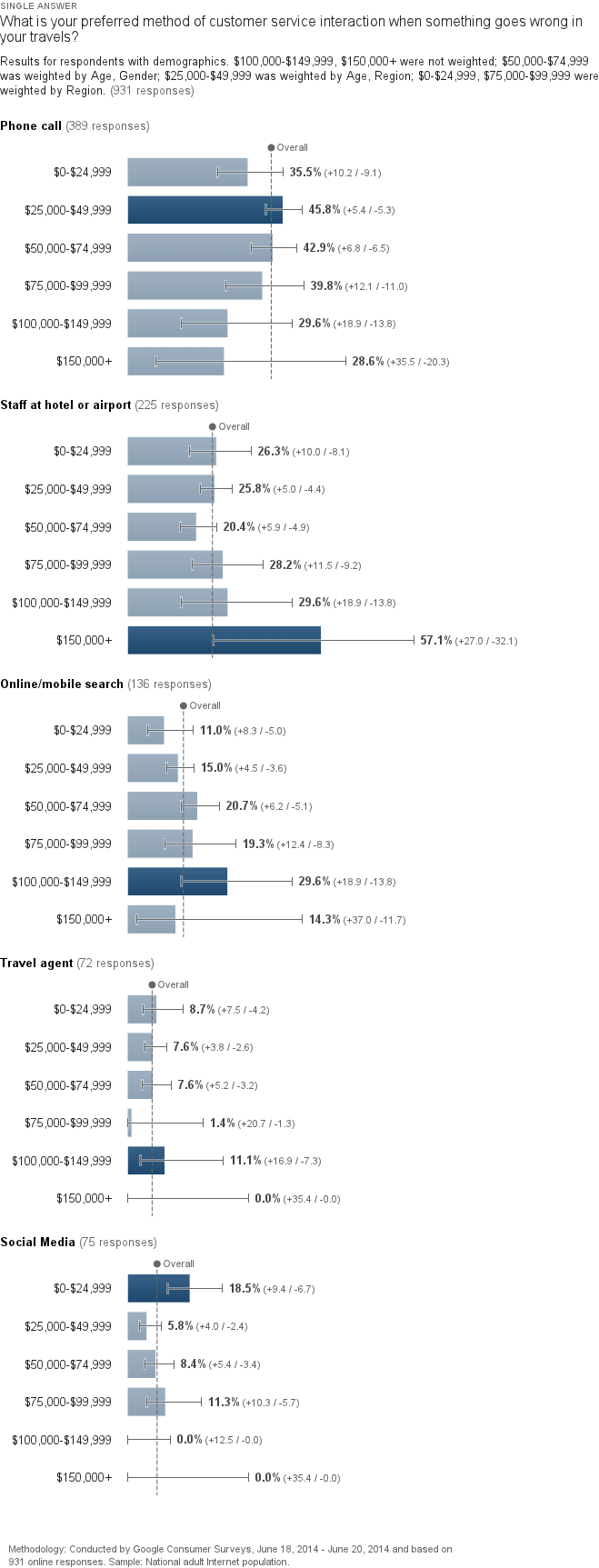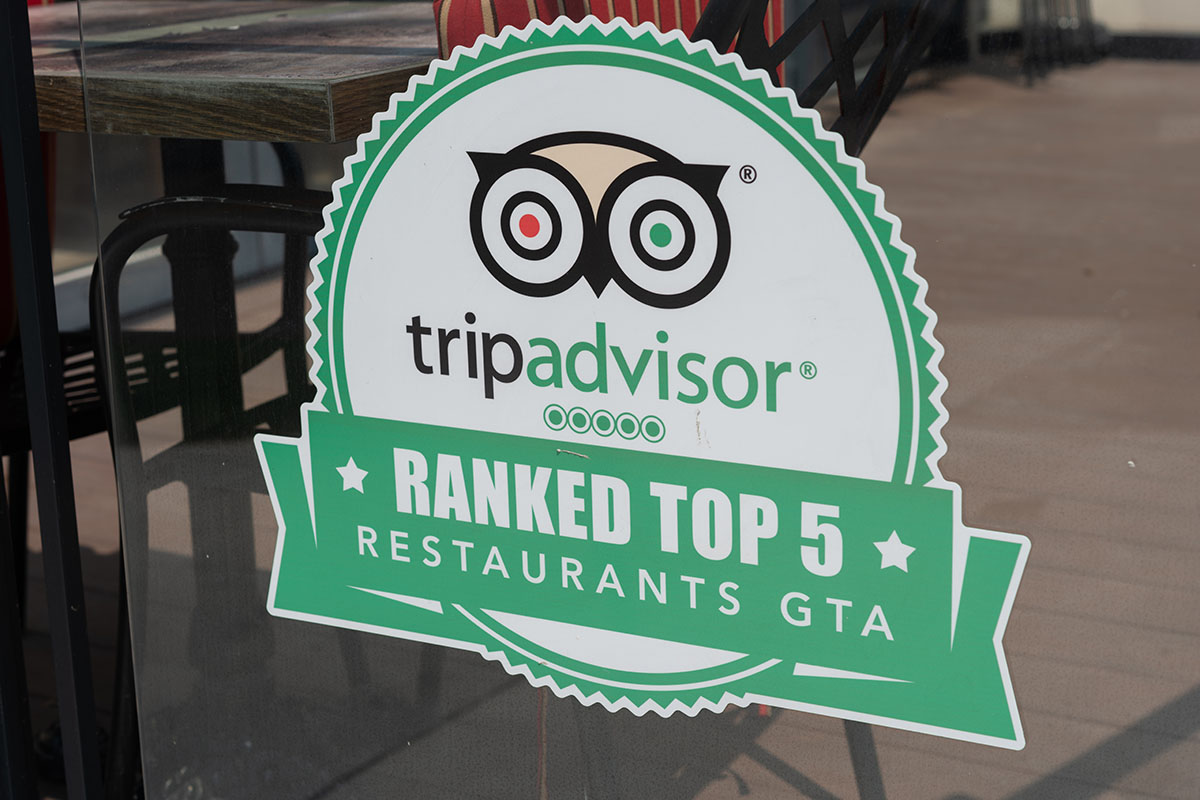Travel Habits of Americans: Social Media Is the Least Popular Method of Customer Service
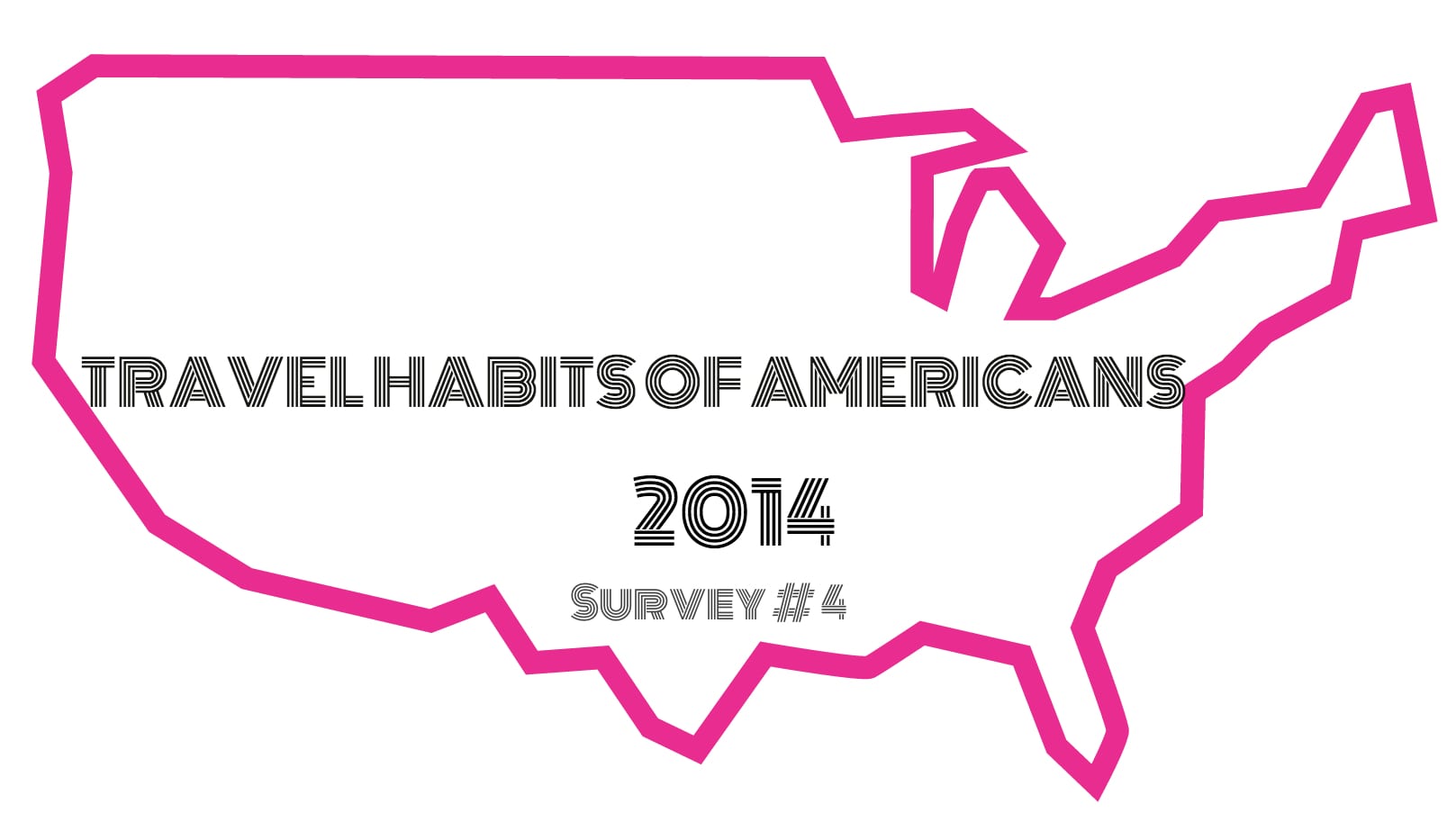
Skift Take
 Recently, Skift started a new series of consumer surveys, “Travel Habits of Americans 2014” focusing on the big-picture travel habits of Americans.
Recently, Skift started a new series of consumer surveys, “Travel Habits of Americans 2014” focusing on the big-picture travel habits of Americans.
The fourth survey in this series is around customer service preferences of Americans while they are traveling.
We asked Americans about their customer service habits when things go wrong in their travels. Turns out, in this digital age, phone still remains the most popular tool for getting customer service from travel brands, and social media, touted all around as the new customer service tool, is the least popular with Americans.
Important: This survey — not served to Skift users — was administered to about 1500+ of the U.S. adult internet population in June 2014, through Google Consumer Surveys. The methodology is explained here.
» Top-level findings, Chart 1 below: A phone call is still the most popular tool for Americans to use when something goes wrong in their travels, while human-to-human interaction is second most popular, which means old-school still rules in customer service, for all the hype around digital CRMs.
Social media is the least popular, but that could be expected: It is the least mature of all the channels, and still has a long way to grow.
» Breakdown by sex, Chart 2 below: Men like using digital tools for customer service slightly more than women in America. Women like human-to-human interaction more, whether through staff at hotel/airport or through travel agents.
» Breakdown by age, Chart 3 below: Not a surprise, older Americans like using phone and human interaction for customer service, while the young like using digital tools, though they also strangely prefer travel agents more than any other mode (possibly virgin travelers traveling for the first time on their own, prefer human interaction).
» Breakdown by region, Chart 4 below: U.S. west coast like using more digital tools for customer service, which likely accounts for tech-forward states like California in it.
» Breakdown by region, Chart 5 below: Urban America likes using social media for customer service the most compared to other Americans.
» Breakdown by income, Chart 6 below: Richer Americans demand more human-to-human interaction when things go wrong in travel (whether staff at hotel/airport or travel agents), but lower income Americans use social media tools the most

